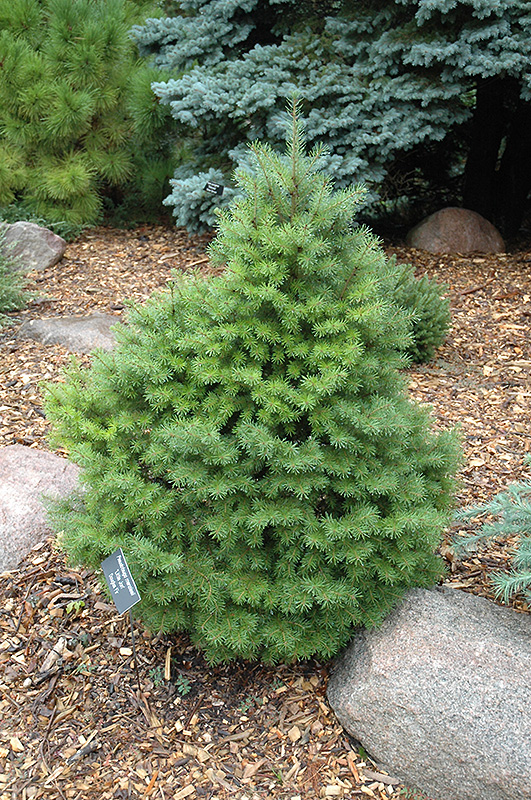Plant Finder
Little Jon Douglas Fir*
Pseudotsuga menziesii 'Little Jon'
* This is a "special order" plant - contact store for details
Height: 12 feet
Spread: 10 feet
Sunlight:
![]()
Hardiness Zone: 4a
Description:
A handsome conical shaped dwarf fir that is globular when young and very slow growing; it has dense delicate foliage on fine branchlets, needles are flat, soft and thin giving this shrub its fine texture; enjoys full sun in the garden
Ornamental Features
Little Jon Douglas Fir is a dwarf conifer which is primarily valued in the landscape or garden for its ornamental globe-shaped form. It has attractive green evergreen foliage which emerges light green in spring. The needles are highly ornamental and remain green throughout the winter.
Landscape Attributes
Little Jon Douglas Fir is a dense multi-stemmed evergreen shrub with a more or less rounded form. It lends an extremely fine and delicate texture to the landscape composition which can make it a great accent feature on this basis alone.
This is a relatively low maintenance shrub. When pruning is necessary, it is recommended to only trim back the new growth of the current season, other than to remove any dieback. Deer don't particularly care for this plant and will usually leave it alone in favor of tastier treats. It has no significant negative characteristics.
Little Jon Douglas Fir is recommended for the following landscape applications;
- Accent
- Vertical Accent
- Mass Planting
- Hedges/Screening
- General Garden Use
Planting & Growing
Little Jon Douglas Fir will grow to be about 12 feet tall at maturity, with a spread of 10 feet. It tends to fill out right to the ground and therefore doesn't necessarily require facer plants in front, and is suitable for planting under power lines. It grows at a medium rate, and under ideal conditions can be expected to live for 40 years or more.
This shrub should only be grown in full sunlight. It requires an evenly moist well-drained soil for optimal growth, but will die in standing water. It is not particular as to soil type, but has a definite preference for acidic soils. It is somewhat tolerant of urban pollution, and will benefit from being planted in a relatively sheltered location. Consider applying a thick mulch around the root zone in winter to protect it in exposed locations or colder microclimates. This is a selection of a native North American species.
* This is a "special order" plant - contact store for details
